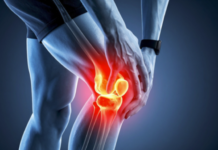NEW DELHI– Women who experience puberty before age 11 or give birth before 21 face sharply higher risks of serious health problems later in life, including Type 2 diabetes, heart failure, and obesity, according to new research.
The study, led by the Buck Institute for Research on Aging in the U.S. and published in eLife, found that early reproductive milestones can double the risk of metabolic disease and even quadruple the risk of severe complications. In contrast, later onset of menstruation and childbirth were genetically linked to longer lifespan, lower frailty, slower biological ageing, and reduced risk of age-related illnesses such as Alzheimer’s.
“We show that genetic factors favouring early reproduction come with a significant cost later in life, including accelerated ageing and disease,” said study author Pankaj Kapahi, professor at the Buck Institute. “While early reproduction may benefit offspring survival, it can carry detrimental consequences for the mother.”
Researchers analyzed genetic data from nearly 200,000 women in the U.K. and identified 126 markers connecting reproductive timing with ageing. The study highlighted body mass index (BMI) as a key factor: women who experienced puberty and childbirth earlier were more likely to have higher BMI, contributing to greater risk of obesity and diabetes.
Kapahi said the findings have important public health implications, suggesting that women at risk may benefit from targeted interventions such as metabolic screenings, lifestyle modifications, and dietary guidance.
“Understanding the long-term impact of reproductive timing allows for the development of personalized health care strategies,” he added. (Source: IANS)














